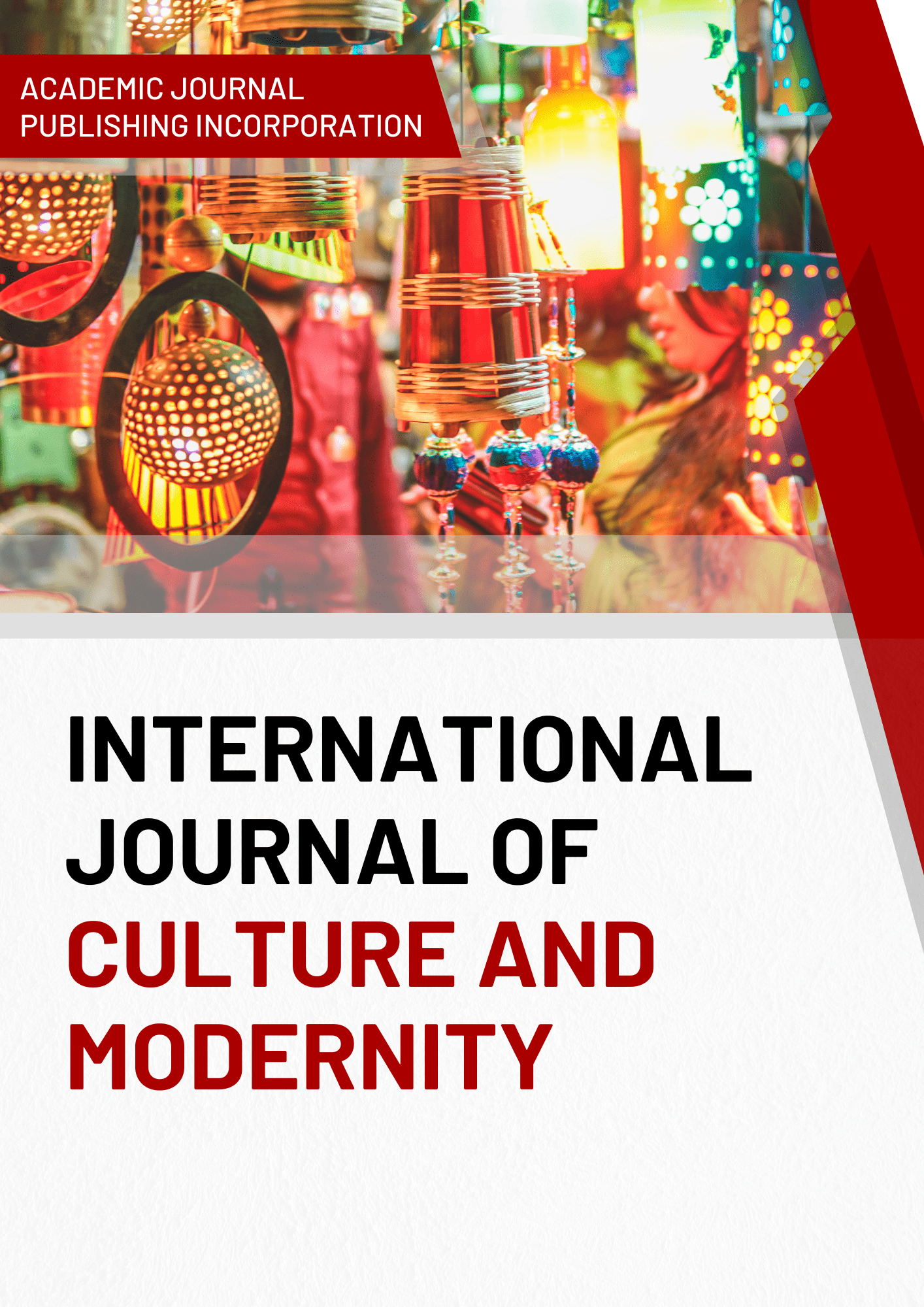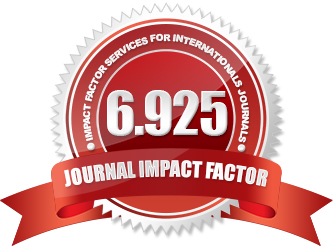ABOUT QUANTITY OF QUALITIES
DOI:
https://doi.org/10.51699/ijcm.v17i.334Keywords:
formal linguistics, linguistic sign, analogy, literary norm, syntactic function, language and societyAbstract
The article provides information about the linguistic units of taste and their methodological features.
References
Мукаррамов М. Ўзбек тилида ўхшатиш. – Тошкент: Фан, 1976.
Ўзбек тилининг изоҳли луғати. 5 жилдли. I жилд. – Тошкент: “Ўзбекистон миллий энциклопедияси” Давлат илмий нашриёти, 2006.
Gulbakhor, R. (2020). Expression of temporality and locality through noun lexemes in Mahmud Kashgari's “devon”. ACADEMICIA: An International Multidisciplinary Research Journal, 10(11), 1648-1653.
kizi Yusupova, S. T. (2019). STUDY OF RELIGIOUS FUNCTIONAL STYLE IN THE WORLD LINGUISTICS. Scientific Bulletin of Namangan State University, 1(12), 173-178.
kizi Yusupova, S. T., & Sayidrahimova, D. S. (2022). ABOUT THE CLASSIFICATION OF RELIGIOUS TEXTS. Eurasian Journal of Academic Research, 2(2), 63-65.
MAMAJONOV, А., & ROZIKOVA, G. (2018). Stylistics expressive speech system. Scientific journal of the Fergana State University, 1(4), 69-71.
Qizi, Y. S. T. (2020). Religious speech and phonetic interference. ACADEMICIA: An International Multidisciplinary Research Journal, 10(6), 679-683.
ROZIKOVA, G. (2018). Non-traditional communication as a methodics instrument. Scientific journal of the Fergana State University, 1(3), 116-117.
Rozikova, G. Z. (2019). SEMANTIC FEATURES OF LEXEMES BELONG TO THE GROUP OF NAMES OF PERSON APPLIED IN “DEVONU LUGOTIT TURK”. Scientific Bulletin of Namangan State University, 1(12), 136-141.
Rozikova, G. Z., & Yusupova, S. T. (2021). METAPHOR AS A LINGUOCULTUROLOGICAL PHENOMENON. Theoretical & Applied Science, (12), 1086-1088.
Roziqova, G. (2020, December). MAHMUD KASHGARI'S" DEVONU LUG'OTIT TURK" NAMES OF HOUSEHOLD ITEMS USED IN THE WORK EXPRESSIVE SYNONYM LEXEMAS. In Конференции.
Roziqova, G. (2021). MAHMUD KASHGARIS «DEVONU LUGOTIT TURK» AND MODERN UZBEK LANGUAGE. Theoretical & Applied Science, (5), 222-225.
Yusupova, S. T. (2019). CHARACTIRISTICS OF RELIGIOUS FUNCTIONAL STYLE OF THE UZBEK LANGUAGE. In АКТУАЛЬНЫЕ ВОПРОСЫ СОВРЕМЕННОЙ НАУКИ (pp. 20-21).
Yusupova, S. T., & Anvarova, F. A. (2020). Linguoculturological investigation of zoonyms in English and Uzbek. ISJ Theoretical & Applied Science, 11 (91), 78-80.
Мамажонов, А., & Розиқова, Г. (2004). Гапларнинг шаклий-мазмуний тузилишига кўра турлари. Фарғона, 2004. Б, 8.
Розикова, Г. З. (2016). Изучение процесса нормирования узбекского литературного языка синергетическим и квантитативным методами. Ученый XXI века, 32.
Zaylobidinovna, R. G. ., & Shavkatjonovna, Y. S. . (2022). LEXICAL-SEMANTIC ANALYSIS OF BUSINESS WORDS IN ENGLISH AND UZBEK. Modern Journal of Social Sciences and Humanities, 5, 61–65
Zaylobidinovna, R. G. ., & qizi, T. G. A. . (2022). COMPARATIVE ANALYSIS OF ADJECTIVES IN ENGLISH AND UZBEK LANGUAGES. Modern Journal of Social Sciences and Humanities, 5, 66–70.
Kuldashev, N., Avazbek, D., & Parviz, A. (2022). Opinions of Our Ancestors on Language and Speech Purity. Journal of Ethics and Diversity in International Communication, 2(4), 10-16.
Ibragimova, E. I., Zokirov, M. T., Qurbonova, S. M., & Abbozov, O. Q. “Filologiyaning dolzarb masalalari” mavzusidagi Respublika ilmiy-amaliy internet-konferensiya materiallari: Ilmiy ishlar to‟ plami.–Farg‟ ona, 2018.–113 sahifa.
Turdaliyevich, Z. M., & Farhod, I. (2022). Loiq Is the Successor of the Great Figures Of Tajik Literature. International Journal of Culture and Modernity, 14, 51-55.
Maftuna, G. (2022). Methodology of Organizing Problem Lessons in Higher Education. International Journal of Culture and Modernity, 14, 72-77.
Khamrakulova, S., & Zokirov, M. T. (2022). Phraseological units expressing old age of a human being in the English and Russian languages. ISJ Theoretical & Applied Science, 1(105), 280-283.
Zokirov, M. T. (2019). About the general characteristic of bilinguism. Scientific Bulletin of Namangan State University, 1(10), 260-265.
Zokirov, M. T. (2021). ABOUT THE INTERRELATIONSHIPS OF LINGUISTICS AND PSYCHOLOGY. Theoretical & Applied Science, (4), 422-425.
Turdaliyevich, Z. M. (2022). Actual Problems of Bilingualism in a Multi-Ethnic Environment. International Journal of Culture and Modernity, 13, 17-23.
Zokirov, M. (2007). Lingvistik interferensiya va uning o'zbek-tojik bilimimizda namoyon bo'lishi. MDA-Toshkent.
Zokirov, M., & Isomiddinov, F. (2020). December. ABOUT THE HOLES OF LANGUAGE LANGUAGE DICTIONARY. Конференции.
Kuldashev, N. ., Parviz, A. ., & Avazbek, D. . (2022). Fazli Namangani’s “Majmuai Shoiron” Review Zullisonayn Issue. Spanish Journal of Innovation and Integrity, 6, 429-433.
Gulrux, J. ., Maftuna, G. ., E’zozxon, O. ., Muhabbat, U. ., & Abdumalik, S. . (2022). The Method of Onomastic Conversion in the Formation of Toponimes in the Fergana Region. Spanish Journal of Innovation and Integrity, 6, 451-456.
Porubay, I. F., & Ibragimova, E. I. (2021). ABOUT THE FEATURES OF SOCIAL MEDIA DISCOURSE (BASED ON THE EXAMPLES OF RUSSIAN AND ENGLISH LANGUAGES). Theoretical & Applied Science, (12), 482-486.
Ibragimova, E. I. (2020). Aesthetic function of relationships of the addressant. ISJ Theoretical & Applied Science, 05 (85), 101-104.
Sayyora, Q. (2022). FORMATION OF TEXT ANALYSIS IN LINGUISTICS. Modern Journal of Social Sciences and Humanities, 4, 58-61.
Amonov, M. U. (2021). On Arab borrowings, denoting the name of the profession, which is actively used in the Uzbek language. ISJ Theoretical & Applied Science, 11(103), 863-866.
Амонов, М. (2016). АЛИШЕР НАВОИЙ ҒАЗАЛЛАРИДА ҚЎЛЛАНИЛГАН АРАБИЙ ИЗОФАЛАРНИНГ ТУРЛАРИ. Актуальные научные исследования в современном мире, (6-1), 91-94.
Nurmonov, A., & Hakimov, M. (2001). Theoretical formation of linguistic pragmatics. Uzbek language and literature, 4, 54-58.
Hakimov, M. (2001). Pragmatic interpretation of the text in Uzbek language. Author's abstract of the dissertation of the doctor of philological sciences. Tashkent.
Абдурахмонова, Н., & Абдувахобов, Г. (2021). O ‘QUV LUG ‘ATINI TUZISHNING NAZARIY METODOLOGIK ASOSLARI. МЕЖДУНАРОДНЫЙ ЖУРНАЛ ИСКУССТВО СЛОВА, 4(6).
Abduvahobov, G. (2021). About the concept of computer lexicography. ISJ Theoretical & Applied Science, 06 (98), 664-668.
Ismoil, H. ., Mukhtorali, Z. ., Jumaboy, J. ., & Parviz, A. . (2022). WORD FORMATION FROM THE TAJIK BORROWINGS. Modern Journal of Social Sciences and Humanities, 5, 71–76.
Mohigul, A., & Sidiqjon, M. (2022). TILSHUNOSLIKDA VERBAL VA NOVERBAL MULOQOT. RESEARCH AND EDUCATION, 1(2), 429-432.
Ҳасанова, Д. (2016). Раҳбар фаолиятида кечиримлиликнинг ўрни. Замонавий услубшуносликнинг долзарб муаммолари.
Ҳошимова, Ф. (2017). Темур тузукларида сўз қудрати. Замонавий услубшуносликнинг долзарб муаммолари.
Mirsobirovich, M. S. (2022). Linguopoetic Features of the Language of Isajan Sultan's Novel" Alisher Navoi". International Journal of Culture and Modernity, 17, 78-84.
Mirsobirovich, M. S., & Tavakkalovna, N. M. (2022). On the Use of Peraphrases in the Works of Malika Mirzo. International Journal of Culture and Modernity, 17, 72-77.







